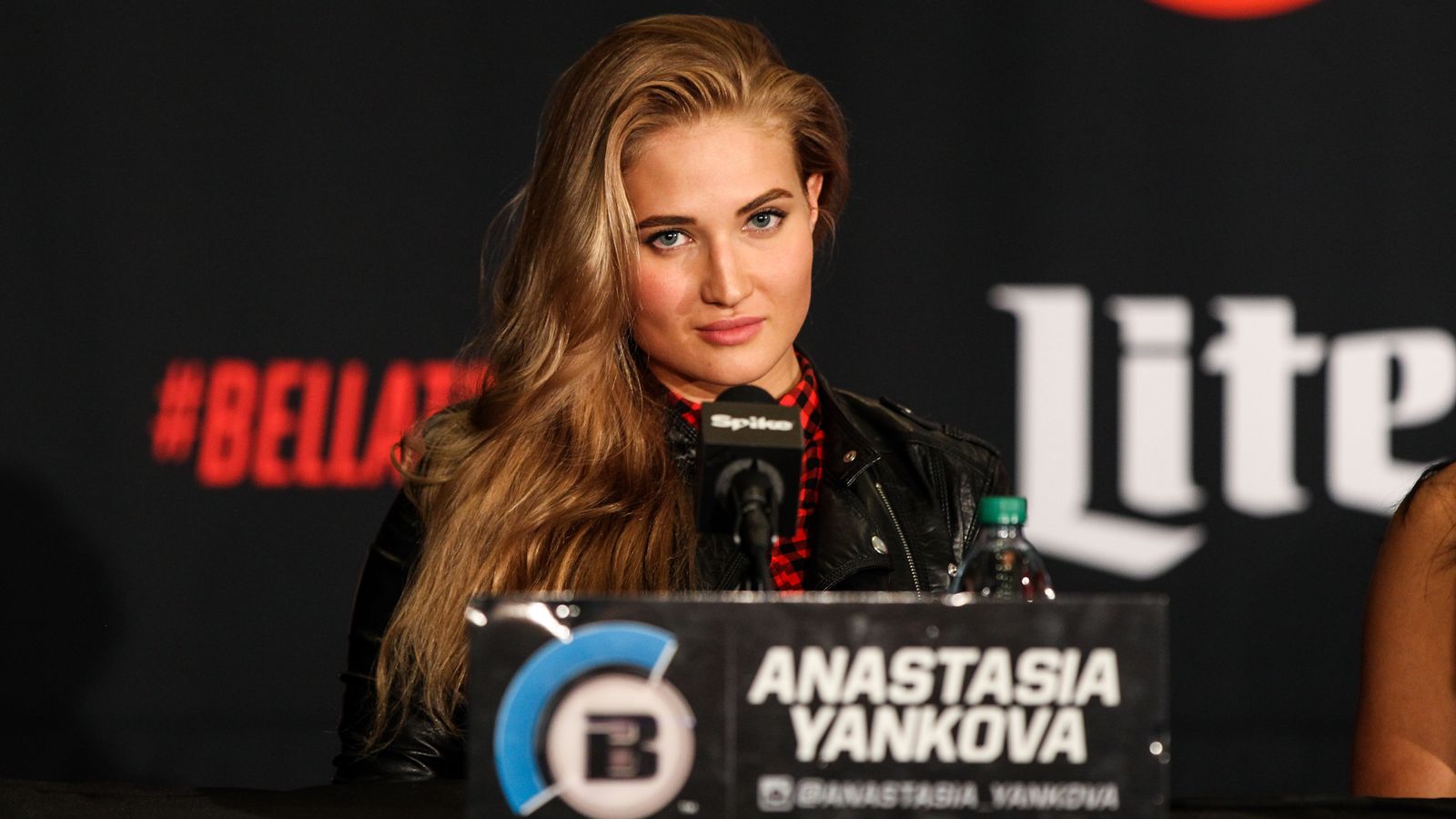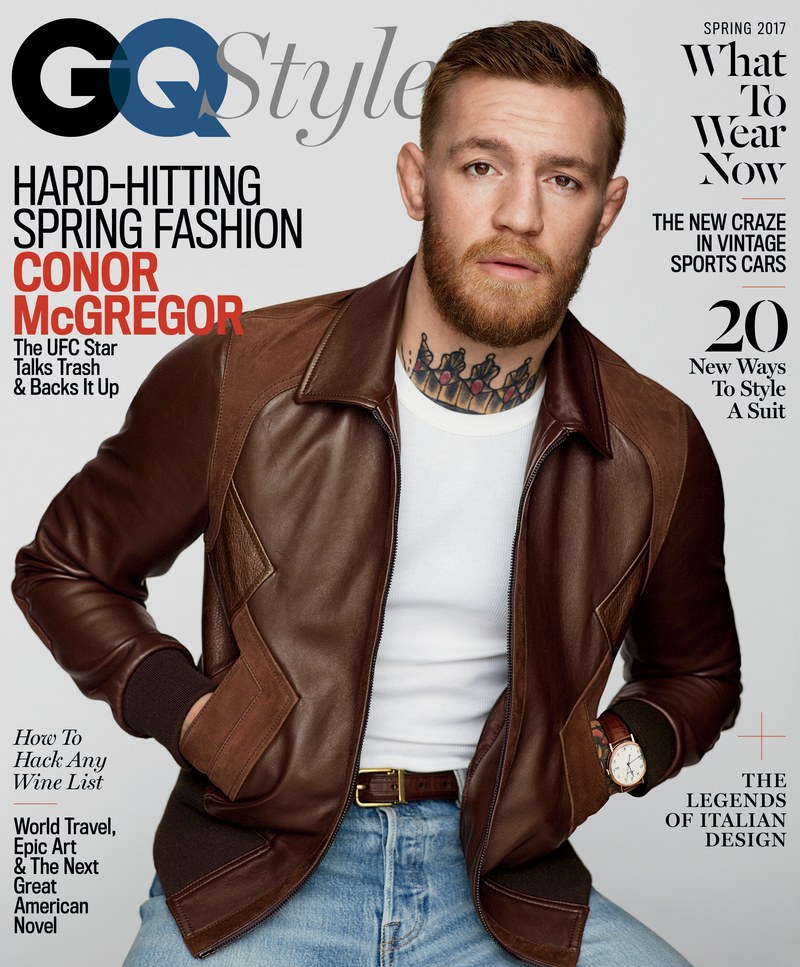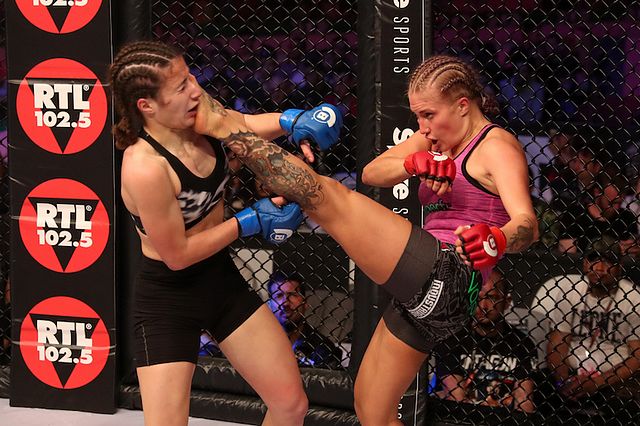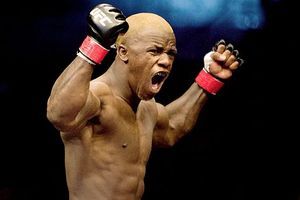Anastasia Yankova, who scored her fifth MMA win in five fights against Elina Kallionidou at Bellator 176, is a fairly new signing to Bellator MMA. She a relative neophyte in the world of mixed martial arts, but one who has been the center of attention in her organization and throughout the combat sports world. The former Russian Muay Thai champion has some legitimacy as a fighter, but due to how she looks (which she has no control over) and her inability to make weight since joining Bellator (which she does have control over), she has generated as many questions as answers in regard to who and what she will become as a flyweight and as a long term mixed martial arts competitor. Today we take a closer look at who she is, why she has gotten so much attention given her limited exposure and activity, and the dirty little secret no one in combat sports wants to discuss.
Before we discuss who she is and how she is as a fighter, we have to talk about what has afforded her a certain amount of support, branding opportunities, and favorable matchups: that would be her looks. Regardless of what we like to tell ourselves, in any phase of life presentation matters. How you come across, the image you put forward, and the way you look, for better or worse, can hinder the amount of opportunities, support, and financial benefits you will receive in almost every phase of life. Whether it is sales, sports, the arts, real estate, or product distribution, the people and or things that have a look that is considered favorable will be pushed to the forefront. Anastasia Yankova is no different; a woman with only five fights in mixed martial arts is the subject of more discussion and the beneficiary of more branding and media opportunities than much more established and successful mixed martial artists.

And unlike many of her fellow fighters, Yankova has had work as a model, as well as in television hosting jobs, experiences that aren’t often made available to the majority of female fighters. At least not the ones who don’t fit a certain aesthetic. That in and of itself can create conflicts with other fighters, as some will feel a “poster girl” is being given something she hasn’t earned based on merit. That bleeds over to the media and fans, who can discern that certain fighters’ place in promotions, payment from promotions, and positions on fight cards are based on their appeal to certain demographics or segments of the fan base, much more so than the things they have achieved as professional fighters.

To be fair, Yankova, who co-main evented a Bellator card in only her third fight in the organization, isn’t the first to benefit from this, and she won’t be the last. Michelle “The Karate Hottie” Waterson is in a title eliminator at UFC on FOX 24, even though she hasn’t faced a legitimately world-class opponent in the UFC; on top of that she has been provided analyst opportunities on FS1 that aren’t very common among female fighters. Cynthia Calvillo hasn’t accomplished much in mixed martial arts, but she has found herself on two main cards when much more established fighters haven’t been given that opportunity; her UFC 210 opponent, Pearl Gonzalez, also has benefited from this. And the most famous example of this would be one Paige VanZant, the woman most fans, fighters, and media members point to as the epitome of what is wrong in combat sports. Her flash, exposure, and ratings have overshadowed what SHOULD be important: Can these women fight or not?
Make no mistake, Anastasia Yankova can fight. She is nowhere near world class or close to being even a fringe contender, but she has a history of combat sports, having competed for an extended period in Muay Thai kickboxing, winning a national title in that sport. So unlike more than a few women’s MMA fighters, such as ranked bantamweight Bethe Correia, Yankova has a legitimate combat sports resume that lends some credibility to her entry into mixed martial arts. But it’s the level of exposure she receives relative to the quality of opposition she faces which creates the conflict and fuels the discussion that she isn’t as good as advertised, or not good at all.
Given her lack of experience, Yankova is actually being moved quite efficiently by Bellator, but for the company’s need to take full advantage of what she has to offer as a source of fan interest. Yankova receives more respect than a 5-0 no-name fighter facing a comparable level of opposition because of the position she has been placed in as a result of her looks and the perceived benefits that creates for the organization. Furthermore, Yankova’s continued failure to come in at the flyweight limit hasn’t helped things, as unlike no-name fighters who have been unable to conduct themselves professionally, Yankova has faced no real repercussions. Her fights have not been canceled, nor has she been held back from being pushed as a potential face of the organization; this smacks of favoritism, the kind that is only offered to those deemed “potential stars.”

Although there is some unfairness in this practice, however, the fact of the matter is that sports, especially combat sports, is a business; regardless of how well fighters can perform, if they don’t resonate with fans they aren’t going to be made a priority. Results matter, but when it comes to being a star or becoming one, what you have done in the cage doesn’t generate interest, money, butts in seats, or pay-per-view buys; they JUSTIFY all of those things. An organization provides a platform for fighters, but the fighters’ looks, charisma, story, or style is what allows them to exceed their position as fighters and become legitimate brands, stars, and potentially superstars. What legitimizes the “hype job,” the “poster girl,” or the “fan favorite” is when he or she beats a ranked fighter or walks through an all-time great. That’s the difference between fighters like Chael Sonnen or VanZant, who are considered frauds and media created fighters, and someone like Conor McGregor, who made good on that promise by coming through in the clutch and performing in the biggest spots against the best opposition.
All fighters mentioned had something that affected their ability to resonate with the fans, but only one of them made good on that by having actual achievements to match the fame, position, and payment he received. So as much as fans hate these types of fighters and the things they are “given,” these fighters are very much a necessary part of combat sports. They raise the profile of the fighters they face and the organizations they fight for, and that creates more opportunities to improve fighter pay and opportunities inside and outside of the cage. That is the dirty little secret no one in mixed martial arts wants to discuss: that these fighters are needed. All of these hardcore purists (fighters and fans) speak to fighters fighting the best and being legitimate. But the only names these fighters demand, the only people they talk about, are the fighters who “haven’t earned it,” “aren’t proven,” or “haven’t fought anyone.” Why is that? BECAUSE THEY WANT TO GET PAID TOO.

As much as fighters despise these people’s opportunities and clear paths to success, they realize they are necessary evils to keep the sport financially viable, and as a result, keep these fighters gainfully employed. Yankova is just the latest example — everyone in her division, in and out of her organization, is talking about an unproven 5-0 fighter whose best win was against a eighteen-year-old with a 3-2 record. Why is everyone talking about her? Because she is a source of media attention, money, and branding, and as much as they “hate” it, they continue to perpetuate it by focusing on the fighter who exemplifies this phenomenon.
Anastasia Yankova is a rookie in mixed martial arts, a fighter who is finding an identity, refining her skills, and developing her overall awareness in regard to skills, personal development, and strategic evolution. In spite of all that, she is still is a source of interest among fighters, fans, and media. Win or lose that isn’t going to change. Best case scenario, Yankova begins to make weight and secure wins against the type of opponents that will afford her the opportunity to achieve the legitimacy that Bellator and Yankova want so badly. Worst case scenario, Bellator and Yankova get “cheap heat” before she is exposed as being no more than an okay fighter who was the beneficiary of world class financial and media support. Either way it goes, Anastasia Yankova will be given every opportunity to be who and what she wants to be, and want to be seen as. It’s up to her to make the most of it.

Bellator 176: Carvalho vs. Manhoef 2 took place April 8, 2017 at Pala Alpitour in Turin, Italy.
Click the stars to rate how good you think Bellator 176 was.
*********




